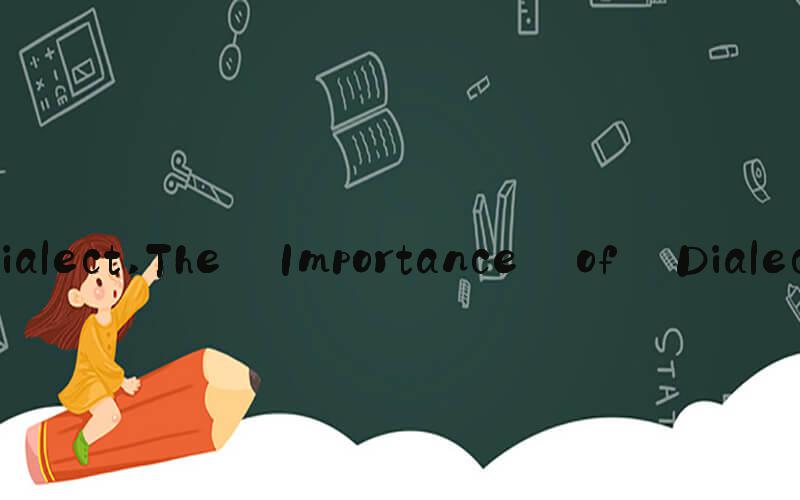
 Dialect
DialectDialect refers to a regional or social variety of a language, which differs in pronunciation, vocabulary, grammar, and usage from other varieties of the same language. In other words, dialect is the variation of a language that reflects the linguistic and cultural diversity of a particular group or community. English, for example, has many dialects around the world, such as American English, British English, Australian English, etc.
The Importance of DialectDialect is important because it is a reflection of a community's identity, culture, and history. It is through the language that people communicate and express themselves, and dialect is an essential part of that communication. It not only provides a deeper understanding of the local culture and customs but also helps to maintain the uniqueness and diversity of a language.
Moreover, dialect plays a significant role in literature, music, and arts. Many books, songs, and poems are written in dialect, which adds to their authenticity and originality. Dialect also creates a sense of community and belonging among people who share the same language and cultural heritage.
The Challenges of DialectDespite the importance of dialect, it can also pose challenges for communication, education, and social mobility. People from different regions or social backgrounds may have difficulty understanding each other due to differences in dialect. This can result in miscommunication, misunderstandings, and even conflict.
In addition, dialect can affect one's educational and professional opportunities. Standard dialects, such as Standard English, are often associated with prestige and success, while non-standard dialects may be stigmatized or discriminated against. This can limit one's ability to access higher education, employment, or other opportunities.
The Future of DialectThe future of dialect is shaped by various factors, including globalization, technology, and social changes. On one hand, globalization and technology have facilitated the spread and standardization of language, which has led to the decline of some dialects and the rise of others.
On the other hand, social changes, such as the recognition of linguistic diversity and the promotion of cultural heritage, have also contributed to the preservation and revitalization of dialects. Many communities have taken initiatives to document and promote their dialects, such as language revitalization programs, dialect dictionaries, or language schools.
In conclusion, dialect is an essential part of language, culture, and identity. While it poses challenges for communication and social mobility, it also provides richness, diversity, and authenticity to a language. The future of dialect depends on our collective efforts to recognize, respect, and celebrate linguistic and cultural diversity.
